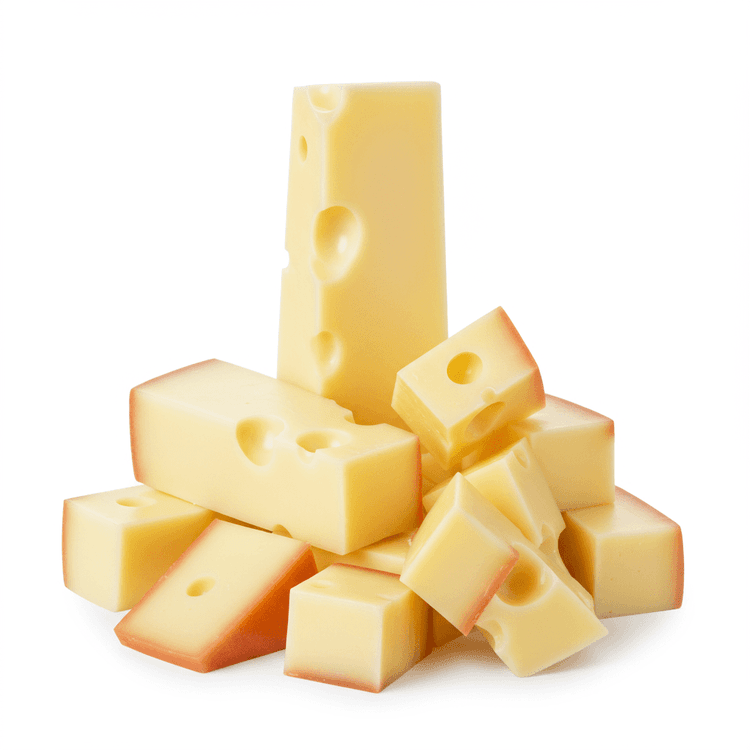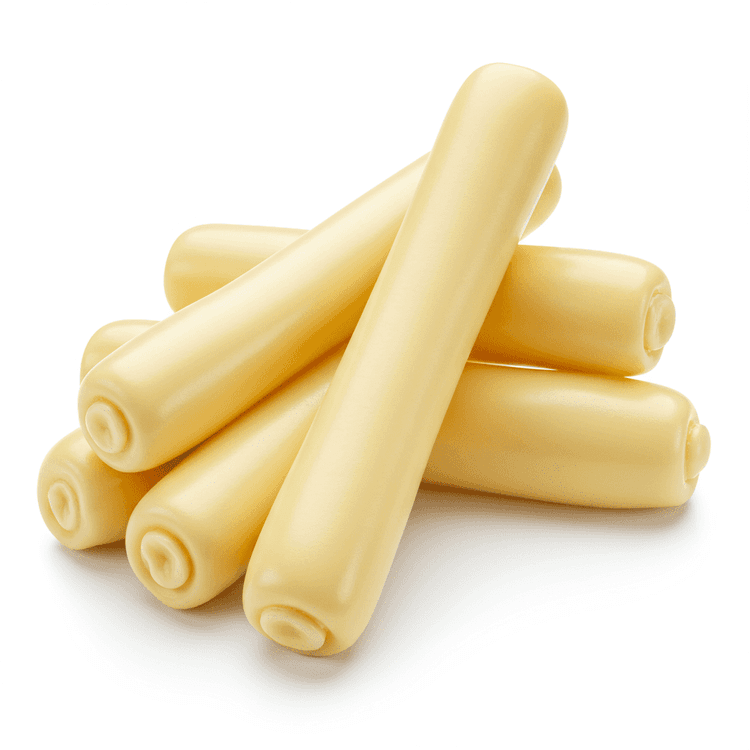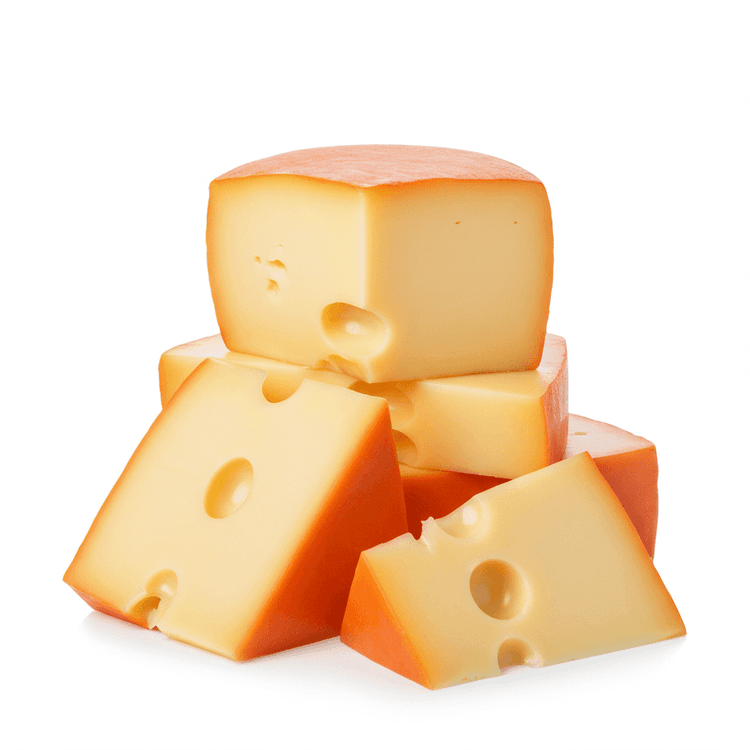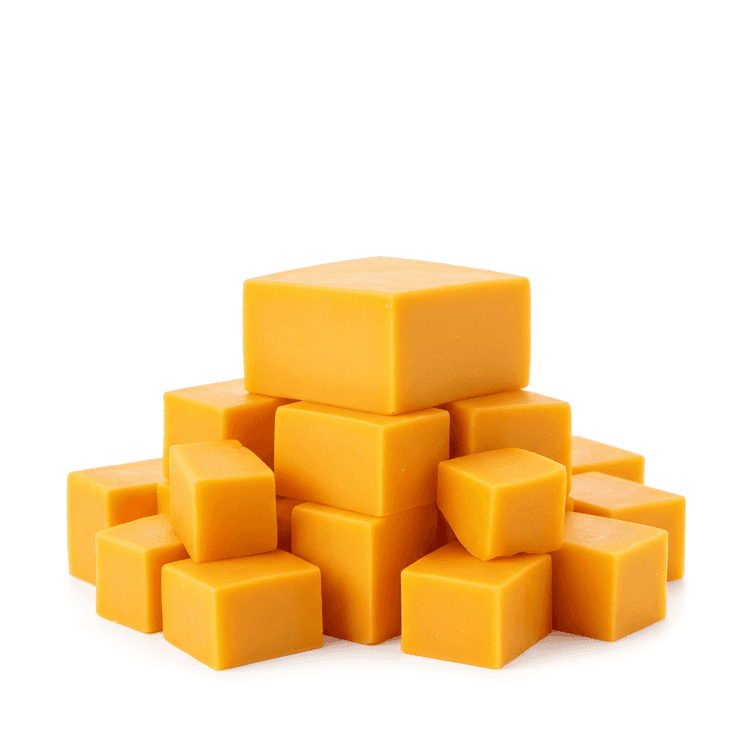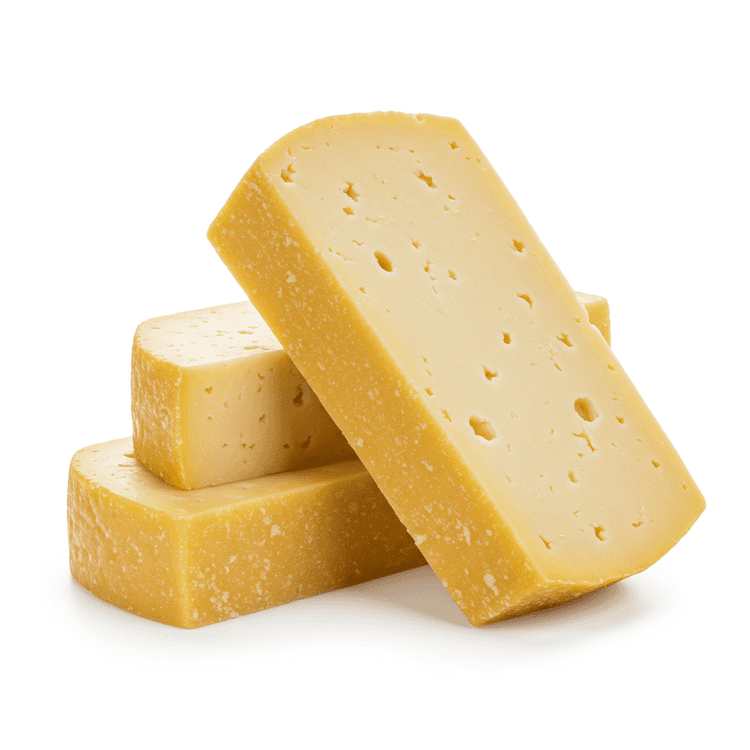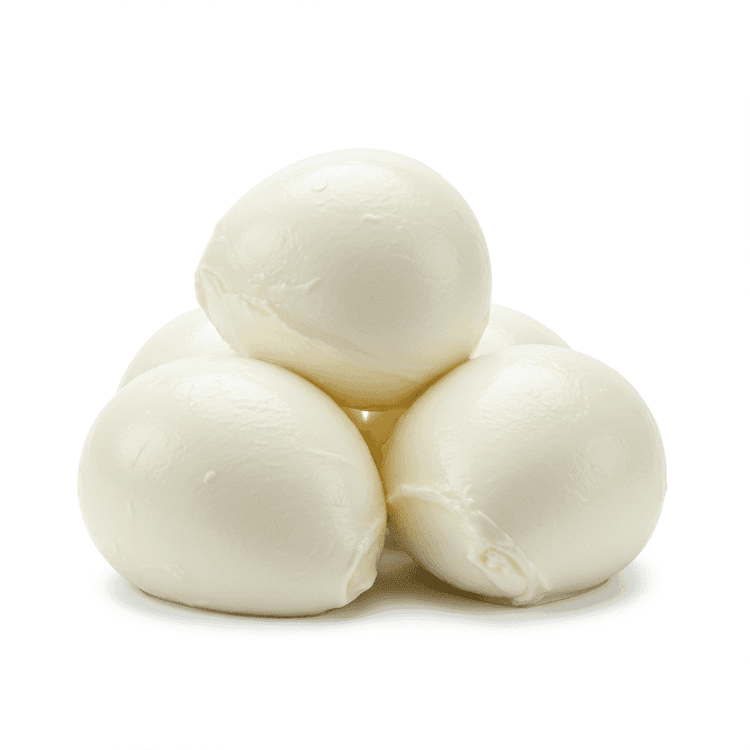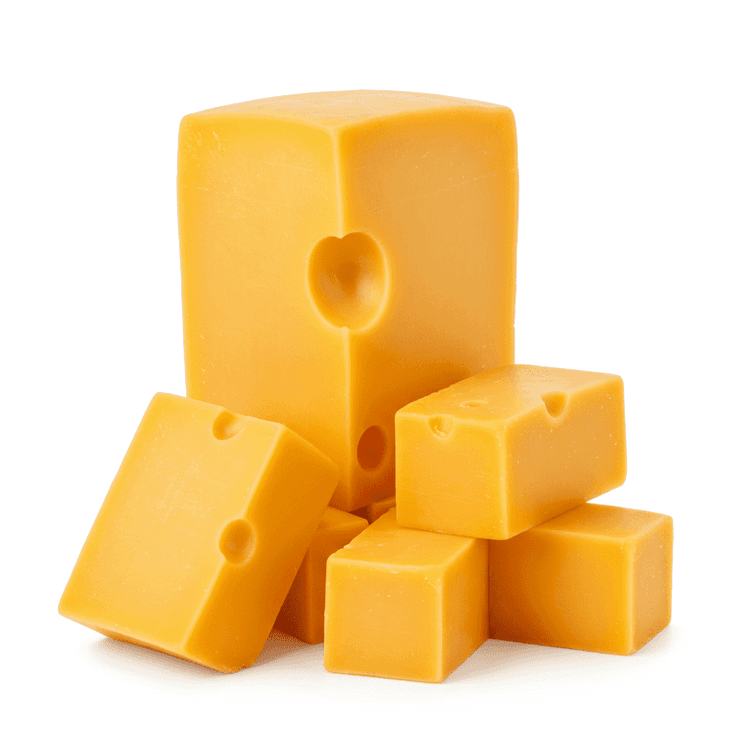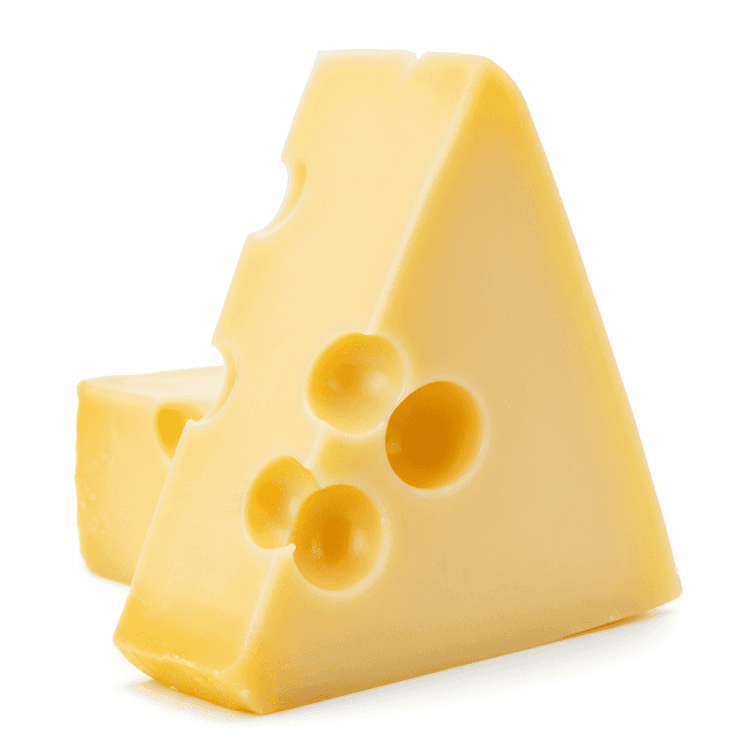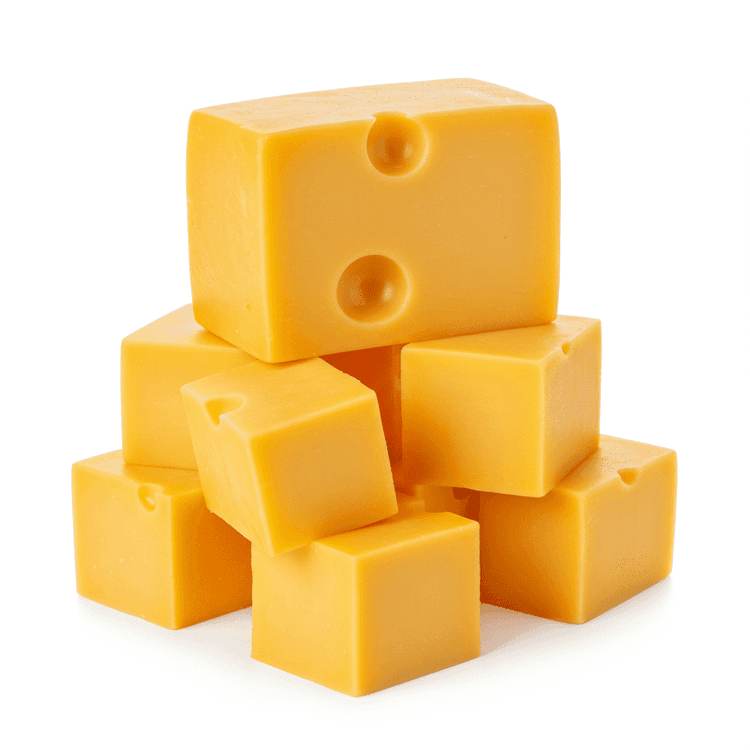
Cheddar Cheese
Cheddar cheese is a widely popular hard cheese known for its firm texture and sharp, savory flavor that intensifies with age. Its color ranges from pale white to a deep orange, depending on the addition of annatto, a natural food coloring. Good quality cheddar cheese offers a smooth, creamy mouthfeel, especially when aged properly. Explore the diverse world of cheddar, from mild and buttery young cheddars to intensely flavored extra-sharp varieties, perfect for snacking or culinary creations.
Common Uses
- Use shredded cheddar cheese to top baked dishes like casseroles, gratins, or macaroni and cheese, adding a rich and flavorful melted layer.
- Incorporate cubed or shredded cheddar cheese into savory baked goods such as biscuits, scones, or cornbread for a cheesy and comforting taste.
- Add slices or chunks of cheddar cheese to sandwiches, burgers, or wraps for a sharp and satisfying flavor contrast with other ingredients.
- Create a classic cheese board featuring cheddar cheese alongside other cheeses, fruits, nuts, and crackers, offering a variety of flavors and textures.
- Melt cheddar cheese into a creamy cheese sauce for serving over vegetables, pasta, or nachos, providing a rich and decadent flavor.
- Grate sharp cheddar cheese into omelets, scrambled eggs, or frittatas for a flavorful and cheesy breakfast or brunch option.
Nutrition (per serving)
Nutrition (per serving)
Calories
403.0kcal (20.15%)
Protein
24.9g (49.8%)
Carbs
1.3g (0.47%)
Sugars
0.5g (1%)
Healthy Fat
9.6g
Unhealthy Fat
22.2g
% Daily Value based on a 2000 calorie diet
Nutrition (per serving)
Calories
403.0kcal (20.15%)
Protein
24.9g (49.8%)
Carbs
1.3g (0.47%)
Sugars
0.5g (1%)
Healthy Fat
9.6g
Unhealthy Fat
22.2g
% Daily Value based on a 2000 calorie diet
Health Benefits
- Good source of calcium for strong bones and teeth.
- Provides protein, essential for muscle building and repair.
- Contains vitamin K2, which may support bone health and prevent arterial calcification.
- Offers conjugated linoleic acid (CLA), potentially beneficial for weight management.
- Supplies vitamin A, important for vision and immune function.
- Source of phosphorus, essential for energy production and bone health.
Substitutes
Chefadora AI is here.
Experience smarter, stress-free cooking.
Storage Tips
Cheddar cheese is best stored in the refrigerator to maintain its quality and prevent spoilage. Wrap it tightly in plastic wrap or beeswax wrap, or place it in an airtight container to minimize exposure to air and moisture. A slightly humid environment in the refrigerator drawer helps prevent it from drying out. Properly stored, cheddar cheese can last for several weeks in the refrigerator. You can also freeze cheddar cheese, but it may become crumbly after thawing; best to use it in cooked dishes after freezing.
Marnirni-apinthi Building, Lot Fourteen,
North Terrace, Adelaide, South Australia, 5000
Australia
